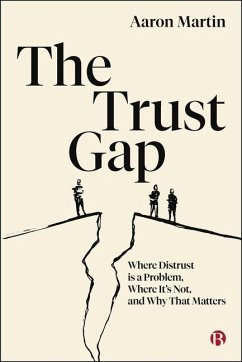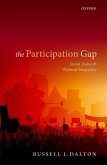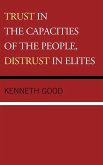The idea that a wave of distrust has swept over established democracies in recent years is commonly accepted. This book presents a contrary view. Drawing on various datasets, it reveals a disconnect between the popular commentary and the empirical reality. The Trust Gap suggests that the most extreme cases -- such as the US and the UK -- distort our thinking about trust. It looks beyond trust in government to examine trust in a range of institutions, including courts, universities and the media. In doing so, it suggests that while countries such as the US do face a crisis of trust, many established democracies demonstrate resilience rather than vulnerability. Using the framework of trust gaps, this book offers a stocktake on the state of trust in the 21st century, contributing a more nuanced and hopeful account than the headlines suggest.
Bitte wählen Sie Ihr Anliegen aus.
Rechnungen
Retourenschein anfordern
Bestellstatus
Storno








